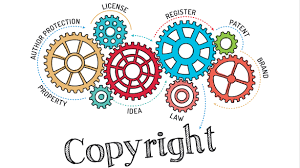Document Required for Copyright Registration
Individual Details
- Name, Address, and Nationality of the Applicant
- Name, address, and nationality of the creator of the work
- Nature of the candidate's enthusiasm for the copyright - regardless of whether the candidate is the creator of the work or the agent of the creator
- Copies of the first work
- ID confirmation of the proprietor and Incorporation endorsement on the off chance that it is for business
Nature Of The Work
- Class and Description of the Work
- Title of the Work
- Language of the Work
- Date of Publication - Publication in inward magazines, similar to an organization magazine or an examination paper submitted to an educator doesn't consider distribution.
The extent of copyright assurance
The Copyright Act, of 1957 forestalls unapproved utilization of any unique scholarly, melodic, emotional, sound chronicles, cinematograph, and other creative works. Both distributed and unpublished works can be copyrighted, and the copyright of the first work is held for the first maker. Copyright can likewise be enlisted for works that were distributed before 21st January 1958, that is before the Copyright Act appeared.
Copyright assurance of unique abstract, melodic, emotional, and masterful works goes on for the whole lifetime of the creator. What's more, it additionally for an additional 60 years tallied from the year following the passing of the creator. On account of sound chronicles, cinematograph films, photos, after-death distributions (distributed post the demise of the creator), mysterious and pseudonymous productions, government works, and works of worldwide associations.
Privileges of the copyright proprietor
Under the Indian Copyright Act 1957, copyright secures the social, monetary, and legitimate interests of the creator. The copyright proprietor is qualified for the accompanying elite rights.
Right Of Reproduction
The Copyright Act expresses that no outsider can repeat or make duplicates of the first work or part of the work except if the copyright proprietor has conceded authorization to do so. It confines propagation through printing a release of work and recording sound and movies.
Right Of Adaptation
The copyright maker can decide to utilize his work however he needs. That is, he can make subordinates from the current work or set up another work in a similar structure or diverse structure dependent on the first work. The accompanying activities characterize the expression "adjustment" according to the Copyright Act:
- Converting plays, motion pictures, choreographic shows, and other sensational works into non-emotional or abstract works like sonnets, books, and books
- Converting scholarly works and creative works like models, photography, artworks, drawings, and so on into emotional work
- Modification or adjustment of sensational and non-emotional work
- Pictorial delineation of the work
- Transcription of melodic work
Right Of Communication with the Public
Copyright proprietors can make their work accessible to general society by methods for communicating or remote dispersion whether in any or a greater amount of the types of signs or visual pictures.
Right Of Public Performance
The proprietors of melodic work and creative work can play out their works openly. For instance, a performer can play his piece or an on-screen character can act in his play for the general population. The specialists can likewise decide to communicate their exhibition in the computerized stages.
Right Of Paternity And Integrity
The Copyright Law allows the ethical privileges of paternity and trustworthiness to the makers. The privilege of paternity or attribution implies that the maker can guarantee initiation over his work and have it credited to him. That is, whoever wishes to imitate or adjust the first work needs to give due credit to the creator, or else the creator has the option to file a suit against the producer. For instance, if an individual needs to make a film out of a book, he/she should properly recognize the writer. Right of honesty secures the privilege of the holder and lets him guarantee harm when somebody misshapes, ruins, or alters his work making disreputation his name and work.
Right Of Distribution
The copyright holder may circulate his work in any structure through imitating, selling, leasing, renting, or loaning. He can likewise dole out explicit rights to an individual to either copyright the work mostly or entirely or subject to specific impediments.

